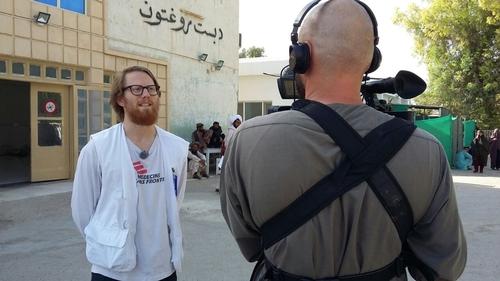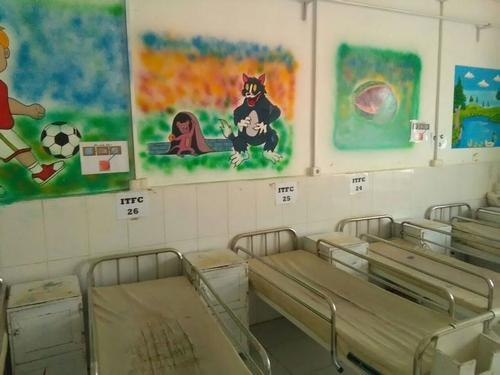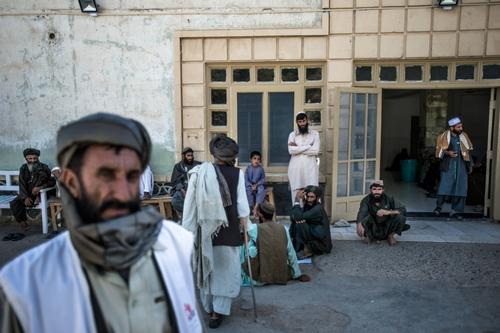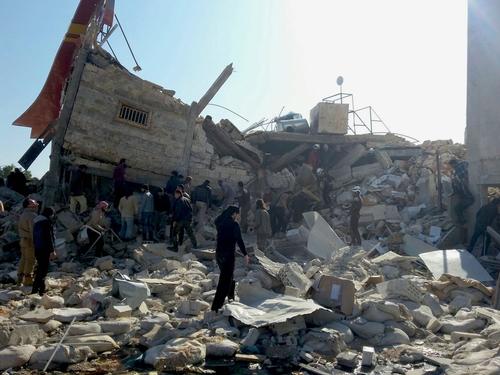Dr Erlend Grønningen from Trondheim, Norway is MSF’s inpatient department supervising medical doctor at Boost Hospital in Lashkar Gah, Helmand. He arrived in Afghanistan in April this year and is primarily focused on internal medicine, as well as the diagnosis and treatment of tuberculosis (TB). This is Dr Grønningen’s second assignment with MSF, having worked in South Sudan in 2014. Back in Norway, Dr Grønningen works and trains as a specialist in respiratory medicine.
He describes how the conflict in the districts surrounding Lashkar Gah has prevented people from reaching the hospital.

Over the last few weeks, fighting in Helmand province has intensified and come closer to the capital, Lashkar Gah, than usual. As the conflict has encircled the city, and even though fighting has decreased in recent days, we’ve seen a significant drop in patient admissions at Boost hospital, a 300-bed facility we run in partnership with the Afghan Ministry of Public Health. The hospital is normally overwhelmed with patients, but lately, we’re seeing fewer people than normal coming to the Emergency Room (ER).
For our team, it’s really frustrating to see how the conflict is directly affecting people’s ability to access medical care. The beds in our paediatric ward and intensive therapeutic feeding centre (ITFC) are almost always full of noisy children and young patients, often two to a bed, getting treatment for malnutrition or other life-threatening conditions. Those wards were eerily quiet, and many of the beds were empty. Empty beds are the face of war.
As the fighting has calmed over the last week, we’ve seen the paediatric ward and ITFC start to return to their normal busy level, but admissions to the ER are still fluctuating every day.
Around a week ago a fifteen year-old girl from Nawa district came in with meningitis – always a grave condition in need of immediate medical attention. Her parents told us she had been sick for at least a week. They knew it was serious and wanted to bring her in immediately, but they couldn’t. Nawa district is very close by, but has seen intense fighting recently. We admitted her knowing it was probably too late already. Twenty-four hours after she started treatment, she fell into a coma and passed away.
We also had a seven-year-old boy come in with severe respiratory distress. His family told us he had been showing symptoms for 12 days. We examined him and found he had a life-threatening lung condition called tension pneumothorax. This is essentially a build-up of air in the chest cavity caused by some sort of injury to the lung. We put in a chest drain and his condition improved soon after, although he will need a chest tube for a while longer until his lung expands fully.

We X-rayed him and his results showed he was also suffering from undiagnosed TB, which is a significant public health problem in Helmand. We started him on TB medication and he soon recovered enough to walk around the hospital like any other curious seven-year-old. But as he moved he was in some discomfort, and a medical examination revealed his left hip was dislocated. His parents hadn’t had a chance to tell us this when he first came in, due to the emergency nature of his condition and because their son was in such distress, but he had actually been in a car accident 12 days before, which caused both the lung and the hip injury. His hip was put back in place and he is currently in traction while he recovered in the MSF-run paediatric intensive care unit.
This young boy’s case shows that even when a case is serious and a patient reaches the hospital late, there is still hope. But delays are putting lives even more at risk. People need to be able to make the journey to us sooner.





